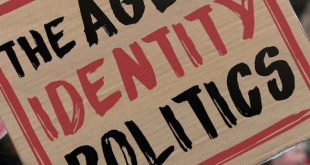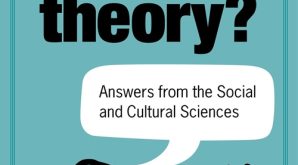Wie links ist es etwa, wenn jüdische Studenten der Universität von Virginia von einer Initiative gegen weisse Suprematisten ausgeschlossen werden, weil sie aus Sicht ihrer gojischen, progressiven Kommilitonen und eifrigen Identitätskommissare als Juden bestimmt Israel unterstützen und damit dieselben Rassisten sind wie alle Israelis? … … Es gibt, glaube ich, noch eine weitere schreckliche Gemeinsamkeit zwischen linker und rechter Identitätspolitik … So wie die alten...
Read More »La Sagrada Famiglia (personal)
La Sagrada Famiglia (personal) Having five grown-up kids it is not that often we manage to come together all of us. But this year we managed to spend Midsummer weekend together at the summer residence on our island. Lovely!
Read More »Der Unterschied zwischen Schweden und Deutschland
Der Unterschied zwischen Schweden und Deutschland ZEIT: Wenn Sie sehen, wie Experten im Fernsehen befragt werde, tut Ihnen das weh? Angner: Ja, schon. Manchmal möchte ich meinen Fernseher hineinschreien: “Das können Sie doch gar nicht wissen!” ZEIT: Der ehemalige schwedische Staatsepidemiologe Johan Giesecke hat gesagt: “Der Unterschied zwischen Schweden und Deutschland ist, dass Deutschland seine Wirtschaft ruiniert.” Angner: Johan Giesecke ist so viel in...
Read More »Cultures of expertise
[embedded content]
Read More »The ultimate takedown of teflon coated defenders of rational expectations
The ultimate takedown of teflon coated defenders of rational expectations James Heckman, winner of the “Nobel Prize” in economics (2000), did an interview with John Cassidy in 2010. It’s an interesting read (Cassidy’s words in italics): What about the rational-expectations hypothesis, the other big theory associated with modern Chicago? How does that stack up now? I could tell you a story about my friend and colleague Milton Friedman. In the...
Read More »What is theory?
Economics is a discipline with the avowed ambition to produce theory for the real world. But it fails in this ambition, Lars Pålsson Syll asserts in Chapter 12, at least as far as the dominant mainstream neoclassical economic theory is concerned. Overly confident in deductivistic Euclidian methodology, neoclassical economic theory lines up series of mathematical models that display elaborate internal consistency but lack clear counterparts in the real world. Such models are at...
Read More »A ‘new’ way to solve quadratic equations (student stuff)
A ‘new’ way to solve quadratic equations (student stuff) [embedded content]
Read More »Social science — a plaidoyer
Social science — a plaidoyer One of the most important tasks of social sciences is to explain the events, processes, and structures that take place and act in society. But the researcher cannot stop at this. As a consequence of the relations and connections that the researcher finds, a will and demand arise for critical reflection on the findings. To show that unemployment depends on rigid social institutions or adaptations to European economic aspirations...
Read More »Unforgettable picture
Patrick Hutchinson carrying an injured white man to safety during protests in London because he didn’t want reason for the protests to be lost in one moment of violence. A courageous act. And courage is not anything very common, and the value we put on it is a witness to its rarity. Courage is to do the right thing in spite of danger and fear. To keep on even if opportunities to turn back are given. Like in the great stories. The ones where people have lots of chances of...
Read More »Mes profs de français préférés
Mes profs de français préférés [embedded content] [embedded content]
Read More » Lars P. Syll
Lars P. Syll







